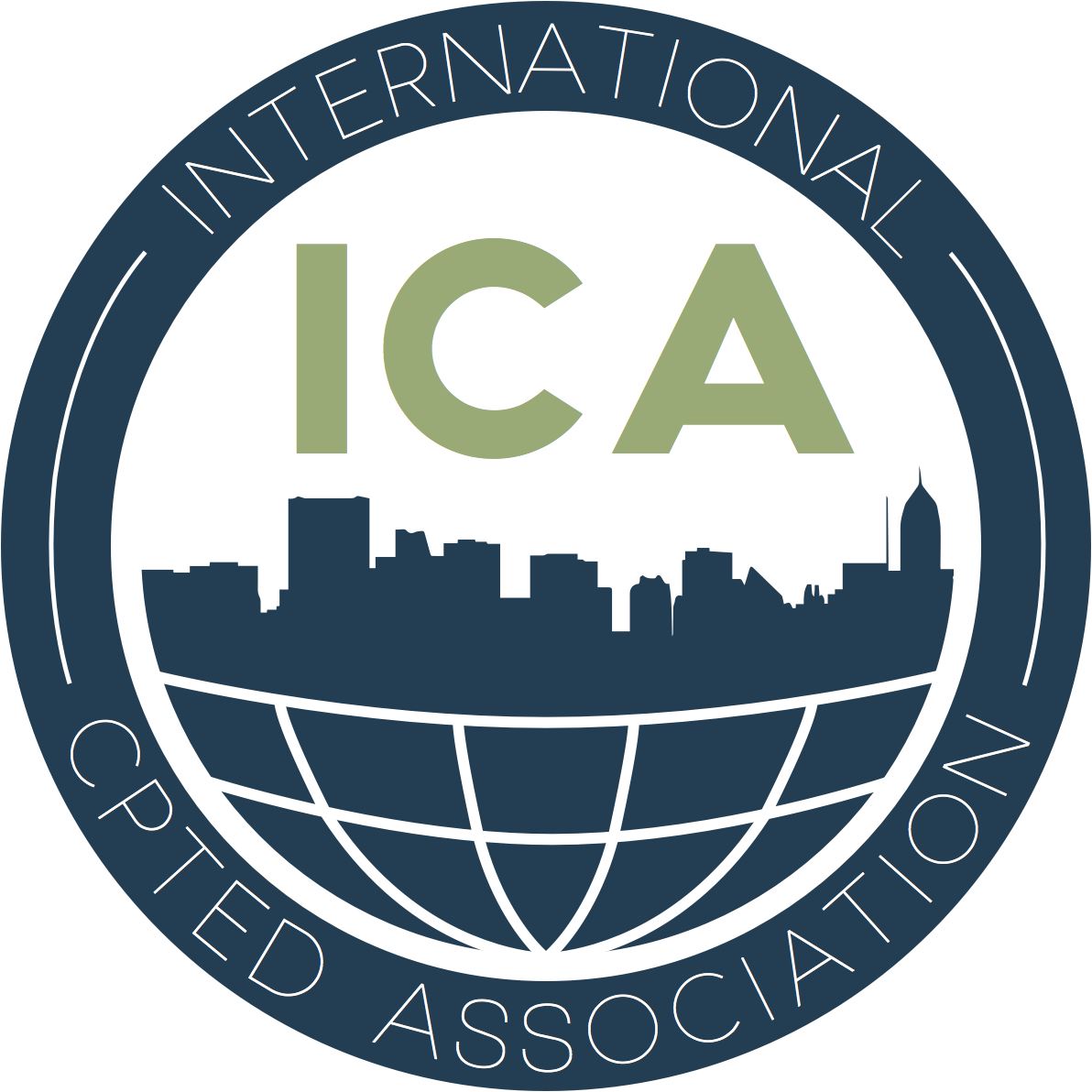ICA Code of Ethics
- Home
- About us
- Regulatory Documents & Policies
- ICA Code of Ethics

Code of Ethics
of the
International CPTED Association (ICA)
The ICA Code of Ethics
The ICA Code of Ethics outlines the guiding ethical values for individuals and groups, as well as organizations associated or affiliated with the ICA (i.e. ICA Chapters) - from hereafter referred to as ICA members.
ICA members include practitioners from many groups and disciplines. These include the government, private practice, university, police and anyone with interest in safety and crime prevention, specifically CPTED.
Objective
The ICA is a voluntary non-profit association with a self-imposed obligation to uphold a high level of professionalism and moral integrity. The ICA members recognize that their personal qualities of morality and integrity are of the utmost importance in their interactions as promoters and practitioners of CPTED and the ICA.
This document outlines general guiding ethical values for ICA members during conferences, events, meetings, in their volunteer and professional work, mentoring relationships, and in online communications including (but not limited to) emails and social media.
The ICA also adheres to the principles of the UN Declaration of Human Rights and expects the same of its members.
Although adherence to the guiding ethical values is not easily measured, conducting oneself in accordance with these values is an expectation that the ICA has of its members and the ICA members should have of themselves as professionals.
Guiding Ethical Values
We expect that the members of the ICA ascribe to the guiding ethical values based on the four broad principles:
● respect & empathy
● responsibility & accountability
● fairness & integrity
● honesty & sincerity
PRINCIPLE 1: RESPECT & EMPATHY
Showing appropriate regard for other persons.
Considerations:
● respectful communication despite disagreements
● no discrimination of any person based on age, race, colour, gender identity, sexual preference, religious belief or lack thereof, political persuasion, or national origin
● empathy and ability to communicate from the position of appreciating and considering another's perspective, their context and their situation
● commitment to the principle to “do the least possible harm”
● diverse perspectives and views are valued
PRINCIPLE 2: RESPONSIBILITY & ACCOUNTABILITY
Taking ownership for own decisions, conduct and consequences.
Considerations:
● accountability for own actions and inactions
● respecting confidentiality of information
● responsiveness to the client’s needs and accountability for completed work and advice
● duty of offering honest and informed professional advice
● responsibility for ongoing professional learning and development
PRINCIPLE 3: FAIRNESS & INTEGRITY
Acting impartially and objectively with the highest level of moral and ethical standards.
Considerations:
● acting with fairness and integrity towards colleagues and fellow members
● acting with fairness and integrity in professional circumstances
● fostering an ethical culture through own conduct and work
● performing professional duties in accordance with the law and the client’s or organization’s ethical standards
● avoiding conflicts between private interests and professional responsibilities
● incorporating the voice of relevant actors and stakeholders in decision-making
PRINCIPLE 4: HONESTY & SINCERITY
Acting in a truthful and sincere manner both in one’s communications and in one’s conduct.
Considerations:
● personal straightforwardness, truthfulness and honesty
● consistency between what is professed and what is done
● disclosing all relevant information to those having the right to know without misrepresenting the facts
● clarity regarding credentials, knowledge and expertise; only taking on tasks where honest and informed advice can be provided
● ability to assess accurately and acknowledge one’s own strengths and weaknesses in professional circumstances
Transgressions and Appeal
Whereas this document sets out guidelines and expectations of ethical conduct of ICA members, it cannot deal specifically with all circumstances that may arise. Should an ICA member act in a manner that is deemed contrary to the guiding ethical values outlined in this document, a complaint may be lodged against that member. A complaint may be submitted by any person who deems an act by the ICA member in contrast with this Code of Ethics, whether they are a member of the ICA or not.
The complaint will take the form of an email to the Executive Director (executive.director@cpted.net) and/or President (president@cpted.net) of the ICA outlining the transgression and the circumstances surrounding it. The Executive Board will then screen the complaint, and if the complaint has merit, a special committee will be established with the purpose of dealing with the complaint.
In deciding whether the complaint was justified, due consideration will be given to the circumstances of the alleged breach and the views of the ICA member against which the complaint was made. If the findings show the complaint against the member was justified, the ICA member may be reprimanded or expelled from the ICA. The decision will be sent to the ICA member via email to the address provided in the ICA membership directory.
Appeal
If the ICA member considers that the outcome of the complaint process was unjustified, he/she has the right to appeal the decision within fourteen (14) days of receiving the notice of outcome by sending an email to the Executive Director and/or President of the ICA.
ICA Mission Statement
To create safer environments and improve the quality of life through the use of CPTED principles and strategies